In India almost all types of horticultural crops are grown under wide range of agro-climatic conditions. India enjoys an enviable position in the horticulture map of the world. Thirteen All India Coordinated Research Projects under horticulture, with 251 centres spread over 26 States and One Union territory contributed significantly in developing high yielding value added varieties/hybrids, agro-techniques and cropping system suitable for each region and mitigation strategies to solve location specific problems. Research achievements and accomplishments, covering genetic resources / biodiversity, varieties/hybrids released for cultivation; agro-techniques and production system technologies, IPM strategies, quality plating materials and technology demonstration and transfer, each under tropical fruits, sub-tropical fruits, arid zone fruits, palms, cashew, spices, vegetables, potato, tuber crops, mushrooms, medicinal and aromatic plants, betel vine and floriculture for different agro-climatic zones/regions are compiled in these two volumes. Different chapters are authored by competent and eminent scientists of the project in Horticulture Division. The two volumes will be an invaluable source of reference not only for scientists and research workers but also to progressive farmers, industrialists, teachers, students and policy makers in India as well as abroad.
ABOUT THE AUTHOR H P Singh
Born on 2nd July, 1950, Dr. H.P. Singh has served horticulture in various capacities namely Project Coordinator (fruits); Director, NCR for Banana; Horticulture Commissioner, Govt. of India; Chairman, Coconut Development Board; Dean (Agriculture), GBPUA & T, Pantnagar; Vice Chancellor, Rajendra Agricultural University, Pusa and now Deputy Director General (Horticullture), ICAR.He has also served international organizations like the Chairman of APCC, Jakarta, National Director for internationally-aided projects and Chairperson of Steering Committee of BAPNET of Bioversity International and implemented various international programmes. Besides, excellent academic record, Dr. Singh has contributed to research and agricultural education which ha earned him three international, twenty one national awards and five fellowships including the Fellow of NAAS. He has developed many cultivars and technologies which has shaped the horticulture. Recognising his immense contribution, OUAT, Bhubaneshwar, has conferred D.Sc. last year.Dr. Singh is the architect of Mission mode approach for horticultural development, starting from planning to execution which ahs been due to his insight. He has provided to horticulture and is credited to have authored and edited 39 books and 30 bulletins, besides 175 research papers. He has widely traveled in India and abroad. His efforts have provided a strong foundation for horticulture development, leading to Golden Revolution in the country.
ABOUT THE AUTHOR M.S. Palaniswami
M.S. Palaniswami an agricultural scientist, started his career in TNAU in June 1975 and entered into ICAR through agricultural research service at Central Tuber Crops Research Institute, Trivandrum in September 1977. He was Principal Scientist and Head, Division of Crop Protection, CTCRI during 1997-2003. He was the Project Co-ordinator of All India Co-ordinated Research Project on Tuber Crops since September, 2003. He was the principal investigator for an APCESS fund scheme (ICAR) and a world bank funded NATP-CGP project on Cylas formicaruius and for an international project (United States Department of Agriculture - United States - India Fund) on Bemisia tabaci whitefly (for which he was awarded certificate of appreciation by the USDA, Washington) and for a BARC collaborative project. He visited Central International Agriculture Tropical, Cali, Colombia; European Biological Control Laboratory, Montpellier, France; Western Cotton Research Laboratory, Phoenix, USA and Malaysian Agriculture Research and Development Institute, Kaula Lumpur, Malaysia. He was invited to the whitefly meetings at San Diego, California, USA in 1997, 2000, 2002, and 2003 and at Albuquerque, New Mexico, USA in 1999. he was also invited for the cassava biotechnology network meeting at Cali, Colombia in March 2004 and for the second international meetings on Sweet Potato and Cassava at Kuala Lumpur, Malaysia in June 2005. Sex pheromone, kairomone and bio-control agents for sweet potato weevil management; biotypes of B. tabaci whitefly and its role as vector of ICMV; and the parasitoids, pest resistant genotypes, ecology and management of major pests and Indian cassava mosaic virus and B. tabaci vector relations are his noteworthy contributions biologically based IPM for sweet potato weevil and cassava pests and taro pests have been recommended and adopted by root and tuber growers. He has catalogued important pests and diseases of economic and exotic nature for quarantine purpose. In collaboration with BARC, Mumbai developed low cost but highly effective sex pheromone lure for mass trapping of Sweet Potato weevils. As the Project Co-ordinator of AICRP on Tuber Crops, 27 varieties of cassava, sweet potato, taro, bunda and yams could be identified and recommended with production and protection technologies for adoption in nine states of India. More than 150 research papers in international and national journals, many chapters in books, 16 technical bulletins and four annual reports and technical reports are to his credit. He is the Vice President of Association for Advancement of Entomology (AAE) and editorial member of Entomon Journal. Life member of Indian Society for Root Crops, Association for Advancement of IPM in Horticultural Eco-system and Indian Society for Vegetable Science. Edited Journal of "Root Crops" 16 issues as the editor as well as the chied editor during 1988-1996. Participated International and National Symposia / Meetings / Workshops / Agricultural Science Congress and acted as chairman / co-chairman of many sessions. He authored/edited the following books: Tropical Tuber Crops (1990): Special issues of Indian Society for Root Crops; Tropical Tuber Crops (1996) Oxford & IBH, New Delhi and Advances in Entomology (2001), AAE, Trivandrum.

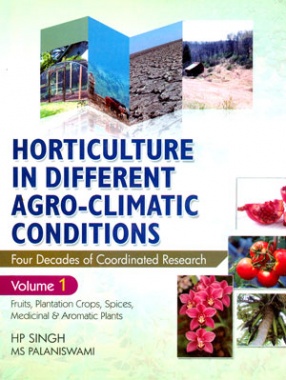
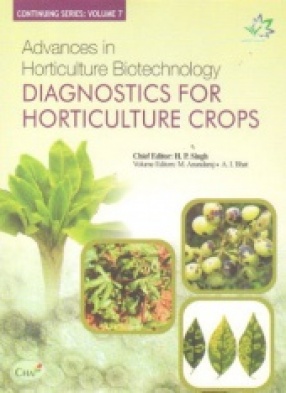
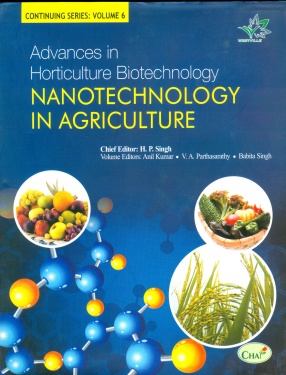
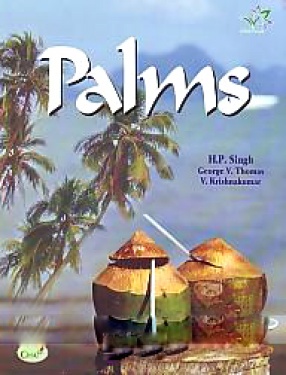
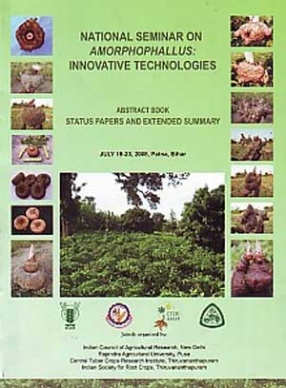
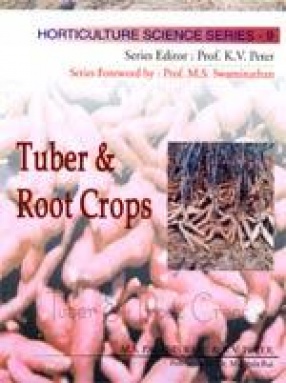

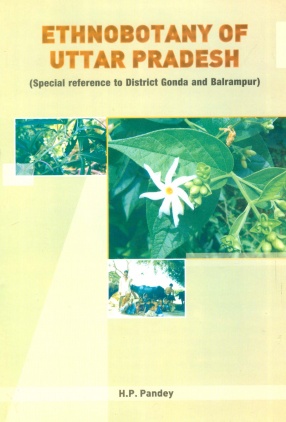
There are no reviews yet.